#moonflower lovelace
Explore tagged Tumblr posts
Text

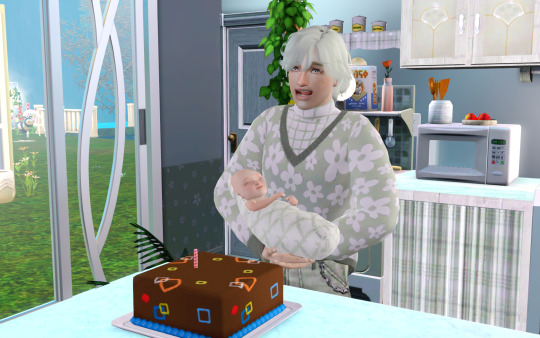
it's Evergreen's birthday!
#the sims 3#ts3#sims 3#berry sweet sims#aestheticore challenge#lovelace legacy#lovelace 1#rosalba lovelace#mars verdell#moonflower lovelace#evergreen lovelace
11 notes
·
View notes
Text
— The New York City Institute



The New York City institute, built in the early 16th century under the consulship of William Aldertree, is one of the oldest institutes in the Americas as well as on of the largest in the world. While the primary focus of the institute is to protect mundanes and enforce Covenant law within the city, it also provides additional support to the Greater New York area when needed. As of 2012 it is the base of operations for the Clave in Exile, headed by Consul Alexander Lightwood.
— Notable Features



The Greenhouse: A later addition to the institute, the greenhouse was added in the early 20th century by then head of institute Clyde Graymark and his wife Florence- who had an interest in experimenting with herbal medicine. It now boasts a variety of plants of both magical and mundane origins, including wolfsbane, midnight flowers, angels trumpet, and moonflower.



The Library: An original feature from the 1500s, the institute library holds over 5,000 books in its towering shelves ranging from historical texts, to magical grimoires, to classic fiction novels. In addition to this collection the library also acts as a miniature museum containing various magical artifacts.
— Staff & Residents
Heads of Institute: Jace Herondale & Clary Fairchild
Staff & Resident: Beatrice Mendoza (tutor), Simon Lovelace, Isabelle Lightwood, Maryse Lightwood
Former Heads of Institute: Robert & Maryse Lightwood, Marian Whitelaw, Edgar Graymark
Former Staff & Residents: Alec Lightwood, Max Lightwood, Hodge Starkweather (tutor), Adam Whitelaw, Rachel Whitelaw, Edith (mundane housekeeper)
#shadowhunters#the shadowhunter chronicles#the mortal instruments#the infernal devices#the dark artifices#the last hours
71 notes
·
View notes
Text
Minor CC Characters' Headcanons
(Characters who appear in ways other than main, recurring, victims, killers/suspects and quasi-suspects)
Abigail Baines
Agent Riordan
Aldo Huxley
Andrew Kamarov
Andrew Stern
Andy Choi
Arthur Cromwell
Arturo Ramirez
Barbara Litzke
Caitlin
Caroline Crane
Celia Barnes
Charlotte Jones
Claire Bell
Clarissa Silverman
Constanza Reyes
Cooper Anderson
Daisy Knight
David O'Connell
Dolores Lovelace
Donna King
Eliza Baldwin
Elma Huckabee
Emma Tank
Ezra Porter
Geert De Haan
George Dupont
Gerald Young
Harriet Gatewood
Hector Purnell
Inaya
Ishmael Cavendish
James Parker
James Pemberton
James Toussaint
Jeb Redfern
Jessica Luang
Jessica Toussaint
Katherine Johnson
Keme Peota
Kong Wan Chun
Laura Knight
Lily Arrow
Lily Toussaint
Lorina Riddel
Louie Cooper
Louise Perrin
Marley Evans
Mary Goodwin
Moonflower
Nahum Meir
Oliver Greene
Paris Baldwin
Piper Ash
Pip Huckabee
Randolf Watson
Rathimael
Reginald Huckabee
Rose O'Malley
Sammy Turner
Sean Flynn
Shane Kolinsky
Shiro Watanabe
Sinfi Badi
Solomon Grimmes
Starshine
Stella Dernier
Theodora Hecate
Theodore Watson
Valeria Poe
William Kingsley
Zachary Partridge
3 notes
·
View notes
Text
Off-Hollywood Producers: Interviews with Griffin Dunne & Amy Robinson by Clarke Taylor (Sept 1985; Part 1)
It could be said of Griffin Dunne and Amy Robinson that, as producers, they represent the refined essence of what independent film-making in America, in 1985, is all about. By their own admission, they live “charmed lives” as producers. They have managed to make the movies they wanted to make, the way they wanted to make them: humane films about people living and struggling through their particular time, made on single-digit budgets--from $2.5 million to $4 million ($5.9 million to $9.5 million in 2019) --unheard of these days in Hollywood. (OP NOTE: God damn this sentence aged well) And they are doing all of this at a comfortable distance from Hollywood, in New York.
There were two films--Joan Micklin Silver��s Chilly Scenes of Winter (co-produced with Mark Metcalf), released by United Artists in 1979 as Head Over Heels, and re-released by UA Classics in 1982 with the original title of the Ann Beattie novel on which it was based, and John Sayles’s Baby, It’s You, distributed by Paramount in 1983. Now Dunne and Robinson are hoping that After Hours, directed by Martin Scorcese, will be their “breakthrough” film. Its $4 million budget was financed through a bank loan (as was Baby, It’s You) and was picked up by the David Geffen Company for distribution through Warner Bros.
After Hours in one way represents a synthesis of what Dunne and Robinson , both of whom started out as actors, say they want to do: focus on both the creative and the business side of film-making. For Dunne, who has pursued his acting career in films such as An American Werewolf in London, Johnny Dangerously, and Almost You, Scorcese’s new film may also mark a turning point. Dunne plays the leading role in the film, a nightmarish New York comedy, heading a cast that includes Teri Garr, Cheech and Chong, and Rosanna Arquette.
Whatever the outcome for Dunne, he and Robinson have two other feature films in development: The Foreigner, a comedy by Larry Shue, at Disney, and an untitled project at Lorimar, based on the producers’ own story idea about the children of sixties underground radicals. They are thinking about producing a third property, The Moonflower Vine, a “family saga” by Jetta Carlton, as a television miniseries.
(OP NOTE: The Foreigner never materialized, and so far, I have no information as to why. The film about sixties underground radicals would eventually become Running On Empty (1988), directed by Sidney Lumet and starring River Phoenix and Martha Plimpton. The Moonflower Vine didn’t materialize either, but I found a blog post by writer Kathleen Rowell about that project, who was going to adapt the screenplay.)
Question: How do you see yourself--as an actor or as a producer?
Griffin Dunne: I always see a hyphen between those two words. It’s just that one always takes precedence over the other, depending on the project. Certainly I’ve made very different choices as an actor than I have as a producer, up until now.
Question: How have the choices been different, and what do you mean, up until now?
Dunne: I’ve acted in films I would have never produced, and I haven’t been very selective, or taken the films very seriously. Often it’s been because of the pay, or because I’ve liked the people who were involved, or because I thought I might do a good enough job with the character I was playing to get the next job. I’ve cared much less about the overall movie, the director, or how well it might do at the box office. After Hours has revitalized my interest in acting: it’s really inspired me.
Question: This is what you mean when you talk about taking your future acting choices more seriously?
Dunne: Yes. With this film I think I’ve crossed the line that divided my acting and producing choices. Now, as an actor, I’m taking into consideration all the things I’ve always thought about as a producer: Am I repeating myself? What about the overall film? Who’s the director? I don’t want to make a nothing picture next, no matter how I might shine.
Question: You started out as an actor, rather than as a producer.
Dunne: Actually, I set out in another direction altogether. I wanted to be a journalist. But there was a guy at my boarding school [Fountain Valley, in Colorado] who talked me into auditioning for The Zoo Story, the Edward Albee play, and this changed my direction, my life. I got that part. It was at this same school where I got caught smoking dope and was kicked out. (OP NOTE: He also got cast in the school’s production of Othello, playing Iago. What I would give to see that)
Question: But you continued to act?
Dunne: Yes, back in Los Angeles I very quickly got roles in TV series, such as Mannix (OP NOTE: will have to track this one down), but I also realized that I was not going to learn how to act from television. I started studying, but I only lasted for about eight months. I enrolled in a kind of let-it-all-happen class, with a lot of weird people, including Miss Linda Lovelace. It was very unsatisfying, very disillusioning-it was a terrible class, that’s what I’m trying to say.
Question: What did you do?
Dunne: I headed for New York and enrolled at the Neighborhood Playhouse. I also started to go up on auditions, and in no time I got an audition for a segment of Kojak [the TV show]. It turned out I didn’t get the part, but at the time I thought everything was going to happen incredibly fast. Instead, for the next four years, I continued to read Backstage and go up on auditions for plays that never happened. I also waited on tables, which I hated more than anything.
Question: What was this period like for you?
Dunne: Very discouraging. There was this one woman with a long Russian name who claimed to be the writer and director of a new play, who was the first to say to me, “You’re going to be great.” She said I was perfect for the part she was casting in her play, so she sent all the other actors who had come to the open casting call home, and took me out for coffee. I soon realized that she was stark raving mad, and then I realized she was a bag lady. I also realized that anyone can hold open casting calls in an effort to meet people, although this is one trick I haven’t employed yet as a producer.
Question: It was during this period that you met Amy Robinson?
Dunne: Yes. I met Amy and Mark Metcalf, another actor, and eventually our co-producer on Chilly Scenes of Winter. None of us were getting much work, so to keep ourselves busy we tried to mount an off-off-Broadway production of a Sam Shepherd play, Cowboy Mouth. We never did. But one day Amy showed us Chilly Scenes, and we became interested in producing the film.
Question: Once Chilly Scenes was out of the way, did you set out on a plan of action to produce more, to act more?
Dunne: At that point, we had no game plan. We were just three actors who produced a movie. But interest was generated in us; suddenly, we were New York producers.
Question: Is there an advantage to being based in New York?
Dunne: Well, we’re here in part because there are fewer producers here. We’re also here because none of us wanted to live in Los Angeles; we go there to pitch our projects. But there are also a lot of creative people who are known here before they go to L.A. and become famous. We can also shoot a film on a smaller budget here because the NABET [The National Association of Broadcast Employees and Technicians] crews are here; we’ve used these crews on our last two films.
Question: Did either of you think of directing after Chilly Scenes, instead of producing, since you all came from the more creative side of the business?
Dunne: Our first inclination was to continue to produce; I don’t know why, except that we had no directing experience. Also, it was at the time Sylvester Stallone started to direct the Rocky films, and it seemed at every meeting [with a studio] someone would say, “Now, you don’t plan to direct...?”
Question: How did you come upon the script for After Hours?
Dunne: Amy was handed the script, which is by a first-time scriptwriter, Joe Minion, while she was lecturing at Sundance [Robert Redford’s film study center in Utah] a couple of years ago. She read it, saw it as a vehicle for me, and we optioned it. Naturally, I agreed that the role was for me.
Question: How did Martin Scorcese come into the picture, and how did you convince him that the role was for you?
Dunne: He simply seemed the perfect director, and he said yes. We then sat down to talk about casting, and some people we had in mind, such as Teri Garr, who’s in the film. I forget who was doing the talking--at some point, I blanked out--but Amy spoke up and said, “Griffin would like to play Paul.” He said fine, just like that.
Question: This is one example of when playing producer and actor pays off.
Dunne: Well, I think I’d come very close anyway, but there might have been some flavor-of-the-month actor who would have gotten the role, and luckily I didn’t have to deal with that.
Question: What was it like working with Scorcese?
Dunne: Well, it’s the largest role I’ve ever had, and unlike the other roles, where I’ve pretty much relied on my natural behavior, the character moves from A to Z--typical Scorcese anxiety-induced behavior. Scorcese’s also the first director I’ve worked with who understood the character as well as I.
I’ve never worked harder for anybody in my life, and I was filled with energy at the start of each new day. He makes great demands on you to get the scene right. Scorcese gets what he needs in the first or second take, but he might do a dozen more, just to see what might turn up. You don’t leave for the day until you’ve done the best work possible.
Question: It sounds as though Scorcese can be very demanding, even obsessive, to work with.
Dunne: Yes. But he’s also able to laugh at himself. For instance, Marty is allergic to cigarette smoking. There’s absolutely no smoking allowed on the set. He’d come on the set, and even if someone had been smoking hours before, he could smell it and would come on the set saying “Who’s smoking? Who’s smoking?” There was this one night--most all our shooting was night shooting in the Tribeca section of New York--during a scene in which my character came around the corner, scared to death of something that had been happening to him, sprawled on his knees, and screamed to the heavens, “What do you want from me?” Suddenly, from a window above the street, this woman stuck her head out and began shouting, “Shut up, shut up!” Of course, she ruined that take, but Marty noticed that a cigarette was hanging out of her mouth, and as though to add insult to injury, he yelled to the crew, “Tell that woman to put her cigarette out!”
Question: What is it about Scorcese that calls on the actor’s total commitment?
Dunne: Well, his enthusiasm is infectious. For instance, there was this one scene that required a Steadicam operator to run back and forth through aisles of desks in an office to the accompaniment of Mozart of a jaunty piece of Mozart that Marty had chosen. The guy was a new, young Steadicam operator, Larry McComkey, and working with Scorcese was a great opportunity for him. Anyway, after going through this scene once, carrying seventy pounds of equipment on his back, and sweaty and exhausted, Larry came up to Marty and said, “How was it?” Marty said, “It was good, it was good, but you hear that music? You have to run with the music, feel the music, and keep going until it’s over.”
We had a lunch break, and just as though he was an actor, Larry stayed behind to prepare for the next take of the scene. After lunch, he had a whole new expression on his face, a look of total commitment to his work. We went through the scene again, and he did it perfectly, this time dancing elaborately with the camera on his back between all the desks to the beat of the music. Afterward, he came up to Marty and asked, “How was that?” “Perfect, perfect,” Marty said, “except for that fourth beat.” And suddenly, they were standing around talking about Mozart. Marty had tapped into the camera operator’s creative side, and made him work hard for him just like he makes actors go through take after take after take.
Question: Did anyone during the production become confused as to your roles as both actor and producer?
Dunne: Well, there was a second AD, and it of course was the AD’s job to let actors know when they were called for shooting. He seemed terribly confused about whether he was to call me, assuming, since I was a producer, I would know of the call. I missed an entire rehearsal because of this--nobody had told me about the rehearsal. So I made a firm point of this and said to him, “I am an actor, and you are a second AD.”
Question: Were there occasions on this film when your tendency to produce overcame your concentration on acting?
Dunne: Well, first of all, Marty and Amy and I were in sync on this from the start, so I didn’t have to worry about such things as “control.” But when I’m acting, the tendency is to drop the producing ball altogether. The phrase “meal penalty” never crossed my mind. Of course, during pre-production, I’d worked on locations, script, casting, but once production began the only way I’d know about problems was if I were to ask. The only problem I actually caught wind of on this picture was that a lot of film was being used. This was because of all the takes Marty shoots, which, as an actor, I love. And since most of the footage being shot was with me, I didn’t see this as a “problem” at all. As far as I was concerned, we had all the time and all the takes in the world. But seriously, knowing that Amy thought we were using a lot of film caused me a slight distraction, but I was able to use this anxiety in my role.
Question: Once After Hours stopped shooting, did you find it difficult to fit back into your role as a producer?
Dunne: Yes. At first there wasn’t a lot for me to do at the office, because things had been running fine without me. I found that if I waited to pick up my own responsibilities, such as obtaining music rights for the film--it turned out I always dealt with music rights to our movie--I found that I really had to assert myself. And I did, because this producing really gives me a tremendous stability. This is one of the reasons I’ve never good at being an unemployed actor. I hated waking up in the morning and thinking, All I have to do is go to the gym. Now I don’t go to the gym; I go to the office.
Question: This sounds like a bizarre film, not by Scorcese standards, perhaps, but by your standards, and Amy’s.
Dunne: It’s certainly the most extreme movie we’ve ever produced, and the most controversial.
Question: Controversial in what way?
Dunne: In the way it speaks to a kind of paranoia and victimization that I think a lot of people living in big cities can relate to. It’s a nightmarish quality of the story that appealed to me, and that I found very funny. I’ve had nights like this in New York, on a more mundane level, when there’s a chain of reaction of events over which you have no control. Just today, on the way to this interview, I passed two men in business suits, on Fifth Avenue, going at it, hitting away at each other. My inclination was to try to break them up--I could so easily have become involved in a mess.
Question: You think the gates are open to the kinds of movies you and Amy want to produce?
Dunne: The great thing about the movie business is that it’s totally unpredictable; the rules are always changing. The kinds of movies the studios are making now are based on what’s been successful in the past, and success comes in lots of unexpected ways. Amy and I want to make movies that a lot of people want to see. If they do, if After Hours makes a lot of money--and it can, because it cost so little to make--we’ll have more credibility with the studios the next time out with the kind of movie we want to make.
Question: And Griffin Dunne will have more credibility as an actor as well. Are you prepared to make hard choices of which role you will play next, actor or producer?
Dunne: I’m told that one of the advantages of being tremendously successful is that you can arrange your life in the way you wish. This is what I’m told.
#griffin dunne#after hours#after hours 1985#martin scorcese#amy robinson#interview#archive#back issue#american film#american film magazine#chilly scenes of winter#an american werewolf in london#johnny dangerously
3 notes
·
View notes
Text
2020: Books
January 1. Unashamed: Rahab (2000) Francine Rivers 2. Once Upon a River (2018) Diane Setterfield 3. Saturn Night Fever (2018) Diane Vallere + 4. The Giver of Stars (2019) Jojo Moyes 5. The Grass Widow's Tale (1968) Ellis Peters + 6. The Truants (2019) Kate Weinberg
February 7. Falling Upwards: How We Took to the Air (2013) Richard Holmes 8. The Bodies in the Library (2019) Marty Wingate 9. Perfect Little Children [Haven't They Grown] (2020) Sophie Hannah 10. The White Cottage Mystery (1927) Margery Allingham 11. False Colours (1963) Georgette Heyer + 12. Girl Waits with Gun (2015) Amy Stewart 13. A Woman of No Importance (2019) Sonia Purnell
March 14. The Book Woman of Troublesome Creek (2019) Kim Michele Richardson 15. Lady Cop Makes Trouble (2016) Amy Stewart 16. Board Stiff (1951) Robert James + 17. Strong Poison (1930) Dorothy L. Sayers * 18. Miss Kopp's Midnight Confessions (2017) Amy Stewart 19. After the Funeral (1953) Agatha Christie *
April 20. Blandings Castle... and Elsewhere (1935) P.G. Wodehouse 21. Evidence Not Seen (1988) Darlene Deibler Rose 22. The Case of the Reincarnated Client (2019) Tarquin Hall 23. The Case of the Sulky Girl (1933) Erle Stanley Gardner 24. Betsy Was a Junior (1947) Maud Hart Lovelace + May 25. The Moving Toyshop (1946) Edmund Crispin 26. Why Shoot a Butler? (1933) Georgette Heyer + 27. The Innocence of Father Brown (1911) G.K. Chesterton 28. The Widows of Malabar Hill (2018) Sujata Massey 29. Eight Perfect Murders (2020) Peter Swanson 30. Stormy Petrel (1991) Mary Stewart 31. Crime On My Hands (1944) Craig Rice, George Sanders June 32. The Case of the Lucky Legs (1934) Erle Stanley Gardner 33. The Jane Austen Society (2020) Natalie Jenner 34. The Unhoneymooners (2019) Christina Lauren 35. The Guest List (2020) Lucy Foley 36. Lady of Quality (1972) Georgette Heyer + July 37. Home Before Dark (2020) Riley Sager 38. Tragedy at Law (1942) Cyril Hare 39. Mexican Gothic (2020) Silvia Moreno-Garcia 40. The Assize of the Dying (1958) Ellis Peters + August 41. My Brother Michael (1959) Mary Stewart * 42. To the Land of Long Lost Friends (2019) Alexander McCall Smith 43. The House on the Cliff (1966) D.E. Stevenson + 44. Jane and Prudence (1953) Barbara Pym 45. Miss Kopp Just Won't Quit (2018) Amy Stewart 46. Sweet Danger (1933) Margery Allingham + September 47. When No One is Watching (2020) Alyssa Cole 48. One by One (2020) Ruth Ware 49. Troubled Blood (2020) Robert Galbraith 50. Betsy and Joe (1948) Maud Hart Lovelace + October 51. The Thursday Murder Club (2020) Richard Osman 52. The Tiger in the Smoke (1952) Margery Allingham + 53. The Satapur Moonstone (2019) Sujata Massey 54. The Eighth Detective (2020) Alex Pavesi November 55. Castle in the Air (1990) Diana Wynne Jones 56. Someone in the House (1981) Barbara Michaels 57. Moonflower Murders (2020) Anthony Horowitz 58. Come, Tell Me How You Live (1946) Agatha Christie + December 59. Envious Casca (A Christmas Party) (1941) Georgette Heyer + 60. The Nine Tailors (1934) Dorothy L. Sayers * 61. The Darkest Evening (2020) Ann Cleeves + read what I already own challenge * re-reads
0 notes
Text

#the sims 3#ts3#sims 3#berry sweet sims#aestheticore challenge#lovelace legacy#lovelace 1#mars verdell#moonflower lovelace
11 notes
·
View notes
Text
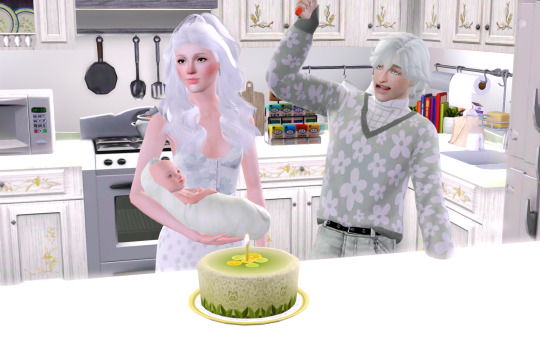
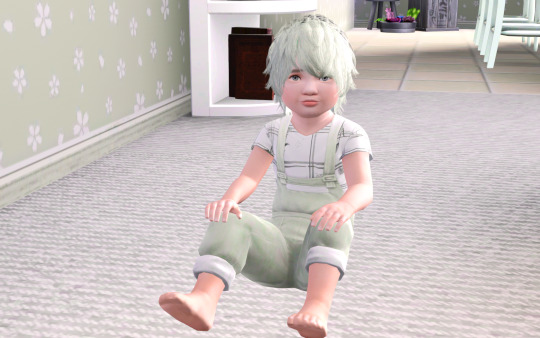
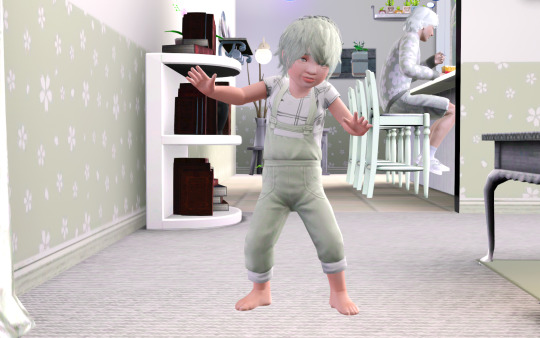
Moonflower Lovelace is on two feet!
#the sims 3#ts3#sims 3#berry sweet sims#aestheticore challenge#lovelace legacy#lovelace 1#rosalba lovelace#mars verdell#moonflower lovelace
15 notes
·
View notes
Text

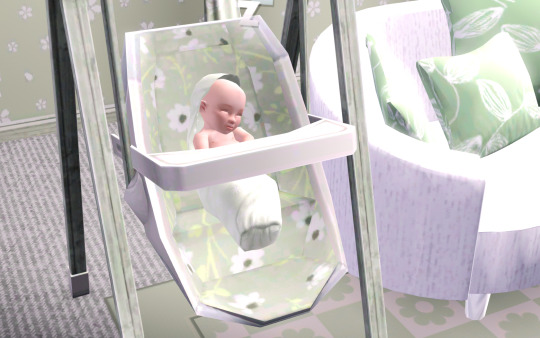

#the sims 3#ts3#sims 3#berry sweet sims#aestheticore challenge#lovelace legacy#lovelace 1#mars verdell#moonflower lovelace
13 notes
·
View notes
Text

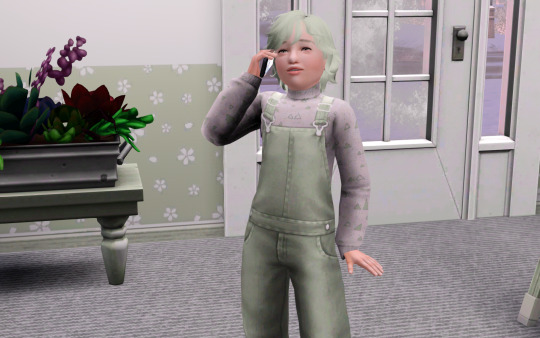
Moonflower: Lest, did you see the way the teacher freaked out at the field trip? I know! He was all 'Moonflower you can't touch that'! *giggles*
Moonflower: Hey do you wanna come over again? We can build a snowman! Okay let me ask momma.
#the sims 3#ts3#sims 3#berry sweet sims#aestheticore challenge#lovelace legacy#lovelace 1#moonflower lovelace
7 notes
·
View notes
Text

Moonflower had a great time on his field trip!
#the sims 3#ts3#sims 3#berry sweet sims#aestheticore challenge#lovelace legacy#lovelace 1#moonflower lovelace
8 notes
·
View notes
Text

Celestia: Your dad's food is yummy!
Moonflower: Isn't it? We can pack some for lunch tomorrow.
Celestia: Sweet!
#the sims 3#ts3#sims 3#berry sweet sims#aestheticore challenge#lovelace legacy#lovelace 1#moonflower lovelace#celestia starlight
8 notes
·
View notes
Text

Moonflower: Momma can I have a friend over tonight?
Rosalba: A friend? Of course.
Moonflower: Sweet! Thank you momma! ♡
#the sims 3#ts3#sims 3#berry sweet sims#aestheticore challenge#lovelace legacy#lovelace 1#rosalba lovelace#moonflower lovelace
11 notes
·
View notes
Text

Moonflower is pretty helpful around the house. Even if he does daydream while doing his chores.
#the sims 3#ts3#sims 3#berry sweet sims#aestheticore challenge#lovelace legacy#lovelace 1#moonflower lovelace
7 notes
·
View notes
Text


Evergreen: Mooon!
Moonflower: Why are you hangin' out in the kitchen, Ever?
Evergreen: Hug!
#the sims 3#ts3#sims 3#berry sweet sims#aestheticore challenge#lovelace legacy#lovelace 1#moonflower lovelace#evergreen lovelace
12 notes
·
View notes
Text


#the sims 3#ts3#sims 3#berry sweet sims#aestheticore challenge#lovelace legacy#lovelace 1#rosalba lovelace#moonflower lovelace
7 notes
·
View notes
Text

Moonflower went over a friend's house after school and he's definitely not used to this many kids under one roof.
#the sims 3#ts3#sims 3#berry sweet sims#aestheticore challenge#lovelace legacy#lovelace 1#moonflower lovelace
9 notes
·
View notes